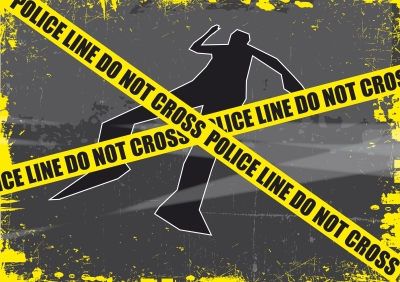If you haven’t seen it yet, the below dashcam video of a New Jersey man being stopped, beaten, and otherwise abused by police — without any apparent justification or cause, as it turns out — is pretty disturbing to watch.
According to a New York Daily News article about the incident, Marcus Jeter, the man being arrested in the video, was pulled over by police who accused him of fleeing and attempting to take one of their firearms during a struggle. None of which was true.
Alleged Police Misconduct Caught on Tape
Jeter had this to say about what happened during the encounter:
“The next thing I know, as he’s coming around the car, the glass gets busted and all the glass goes in my face,” Jeter told WABC. “My hands are up. As soon as he opens the door, one of the officers just reached in and punched me in the face. As he’s trying to take my seatbelt off, he’s elbowing me in my jaw. And I’m like ‘Ahhh!’ and he’s like ‘Stop trying to take my gun! Stop resisting arrest!’”
Police initially charged Jeter with several felonies, all of which could have landed him in prison for as much as five years. But all those were later dropped after an alleged police cover-up was disclosed. Several officers involved have since been charged with a variety of crimes stemming from the incident, including assault and falsifying reports, after a second dashcam video was turned over to Jeter’s defense attorney. It shows pretty clearly what actually happened that night.
And, the only crimes it appears to show are those being committed by the police.
One of the officers has already pleaded guilty to a “tampering” charge, but the cases against two other officers are still pending. I’m willing to give the officers the benefit of the doubt, of course, just like any other accused person. It’s important for all the facts to come in and to wait and see what a judge and jury determine to be true about what happened that night.
But, I also can’t fathom why any cop anywhere would be okay with assaulting and verbally abusing an innocent person, arresting him without probable cause, charging him with crimes he never committed, lying about all of this in police reports, and then believing that somehow he would get away with it.
To me, that’s not only about an individual officer’s willingness to engage in illegal, unethical, and antisocial behavior, but also smacks of an overall culture of corruption. The officers must have felt they could act with impunity, if indeed they did do what they appear to have done in the video and what’s been alleged in the formal charges against them.
Either that, or there’s some other reasonable explanation that hasn’t been revealed yet.
It’s awful to think what might have happened to Jeter had his attorney not requested the video, or had police not released it. An innocent man would likely have gone to prison for doing nothing more than running across some cops with an apparent axe to grind.
Have a safe weekend!
Share this post with all your favorite services!


























